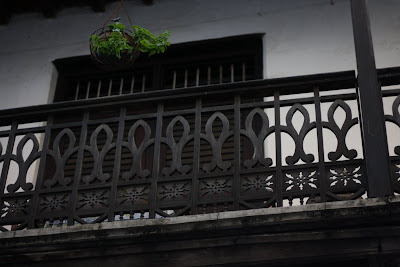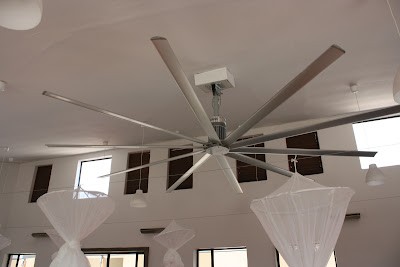I'd love to write a blog post about each of these articles, but given the abundance this week of great stuff that's come across my inbox, maybe it's best to just post the links and let you have at it. Each of these is really worth reading.
Maternal Deaths Focus Harsh Light on Uganda
This damning New York Times article illustrates the maternal health crisis in Uganda through the story of the death of an elected official who bled to death during labor at a major public hospital even though it was later determined she had arrived in time to be saved. A few quotes to get you interested:
"As the United States and other donors have given African nations billions of dollars to fight AIDS and other infectious diseases...most of the African governments have reduced their own share of domestic spending devoted to health, shifting to other priorities."
"The government set off a bitter domestic debate this spring when it confirmed that it had paid more than half a billion dollars for fighter jets and other military hardware — almost triple the amount of its own money dedicated to the entire public health system in the last fiscal year."
From the Daily Independent, a Nigerian paper, this articles offers a somewhat over the top ode to Kigali. The writer, apparently currently residing in Washington, DC, opines over Kigali's clean streets and "unpretentious brick houses". The picture it paints of Kigali is certainly not 100% accurate, but it does illustrate many of the things people appreciate about the city in comparison to its urban African peers. Choice excerpts:
"Kigali city is spotless. The bus drivers and conductors are so clean you could hire them as your secretary on the spot, and plead with them to resume immediately. The markets are tidy, so tidy, you could sit on the floor and chill for a while in the midst of your shopping for organic fresh vegetables and fruits."
"As much aid has poured into the Democratic Republic of Congo, Uganda, and Kenya, but these countries are nothing compared to what Rwanda is today. Rwanda is being built on the discipline of President Kagame and his team, their commitment to excellence, their tenacity in the face of several obstacles, and their uncommon resolve to transcend the temptation to visit vengeance."
AFRICA: The crazy things they say: politicians and HIV
Reading this article is akin to driving by a car wreck. It's difficult to believe that elected officials, responsible for leading their nations and modeling responsibility and knowledge, could publicly give such detrimental statements regarding HIV and AIDS. I can't imagine Paul Kagame ever saying something so prejudiced, callous, and just plain idiotic.
"Her approach to HIV/AIDS drew widespread international condemnation, which came to a head following the 2006 International AIDS Conference in Toronto, when she insisted that garlic, lemon and beetroot be displayed in South Africa's exhibition booth."
"The Swazi MP was left embarrassed after media reports claimed he had suggested branding HIV-positive people on the buttocks in order to prevent the virus from spreading."
How Congress Devastated Congo
This is perhaps my favorite of the group only because it makes me the most pissed off. In a nutshell, it describes how recent US legislation requires public American companies to "indicate what measures they are taking to ensure that minerals in their supply chain don’t benefit warlords in conflict-ravaged Congo". Instead of progress in the Congo, the result has been that American companies have chosen to avoid dealing with Congolese mineral traders altogether and the people who previously dug in mines for around $2 a day are pissed with Obama and his Congressional minions. Congo - damned if you don't and apparently damned if you do.
"No one wants to be tarred with financing African warlords — especially the glamorous high-tech firms like Apple and Intel that are often the ultimate buyers of these minerals. It’s easier to sidestep Congo than to sort out the complexities of Congolese politics — especially when minerals are readily available from other, safer countries."
"The people of eastern Congo agree that it would be beneficial to bring greater clarity and transparency to the mineral trade. A variety of local and international initiatives to do so were under way when the embargo hit. Those efforts may now become a casualty of the Dodd-Frank law."




























































